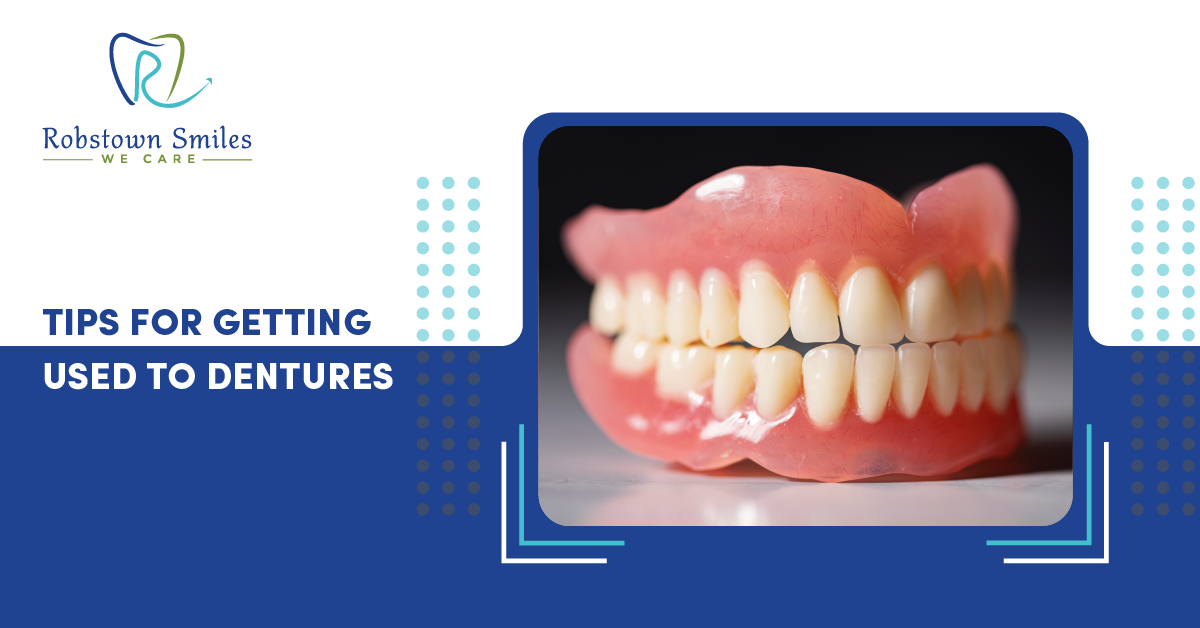Getting acclimated to new dentures can take some time, especially if it’s your first time wearing them. Learning to adjust to the feel of the lower denture may take slightly longer than learning to adapt to the upper denture, as the lower denture is often less secure and your tongue may feel a bit pinched. It may take several weeks before you are entirely comfortable with them.
We give you Dentures that appear and work natural
Robstown Smiles strives to create natural-looking dentures that complement your personal appearance. Your replacement dentures are positioned in the same manner as your original teeth, providing the required strength for your cheeks and lips. This aids in the rejuvenation of any drooping caused by the loss of your original teeth.
It’s natural for first-time full denture users to feel slightly different from what they’re used to. This emotion will pass quickly, and whatever insecurities that tooth loss may have caused you will be gone. Your dental technician will work relentlessly with you to ensure that you are fully happy with your new dentures.
Speaking
Any frustrations you may have experienced during the initial phases will quickly fade as your mouth adapts to your new dentures. Reading aloud is a great approach that patients can use to quickly resolve any speech difficulties. When patients first start wearing dentures, their mouths may produce more saliva than usual, which is entirely natural. To counteract this, drink additional water to dilute your saliva and swallow more frequently. These early-stage peculiarities will fade quickly, and your saliva levels will revert to normal.
Eating
It may take some time to become used to eating with your dentures since your mouth requires time to learn how to interact properly with your new oral prosthetic. Some patients who come to us discover that the dimensions of their jaws have actually contracted as a result of years of wearing poorly fitting and badly damaged dentures. Your new dentures will return your jaw to its proper position, which may temporarily impair your eating ability. Your dentures will reestablish your native face measurements, resulting in improved eating efficiency. It is recommended that patients who are just learning how to eat with dentures eat precisely sliced pieces of food in tiny chunks.
You can also read : Is A Partial Denture Or Dental Bridge Right For You?
This will show you how to adjust to your new bite. When first starting out, avoid eating gritty, rough, or stringy foods until you are more comfortable with your dentures. When eating, try not to bite down on your front teeth, as this can damage their alignment over time. Instead, bite down on the sides of your teeth, towards your rear teeth.
While it may take some time for you to feel completely comfortable with your dentures, the high-quality prostheses provided by Robstown Smiles will allow you to enjoy all of your favorite foods once more.
There are a few things that patients with complete dentures can take to ensure a smooth transition:
Cut your food into small amounts and chew slowly
Chew on both the left and right sides of your mouth at the same time, rather than just one. Avoid biting down on food with your front denture teeth.
Putting on Your New Dentures
It is totally up to you how long you wear your dentures each day, although we highly advise patients with fresh dentures to leave them in, even when sleeping. However, once your gums have adjusted to them, your dentures should be removed before going to bed. This allows the saliva on your tongue to clean your gums.
Soreness
Some patients who have their old dentures replaced with new ones may suffer some discomfort at first. This is because the inside profile of their mouth may have changed after their previous dentures were made for them. Because your new dentures are manufactured to fit the inner profile of your mouth at the moment, the variation in profiles can place pressure on new regions of your gums, producing soreness.
This is normal, but if the pain does not go away after a few days, we can assist in relieving it by changing it for you. If the inflammation is severe, remove your dentures immediately and call us right away. If you wear partial dentures, your own teeth and gums are usually used to support the prosthesis. If you are not used to wearing partial dentures, you may suffer some slight discomfort in the first few days while your mouth adjusts.
Denture Pain That Doesn’t Go Away
If a new set of dentures is causing you pain, or if an old, existing set is causing you pain, schedule an appointment with expert Robstown Smiles, who will examine them for you and determine whether your dentures need to be repaired, relined, or, in the case of very old dentures, replaced with a new set.

